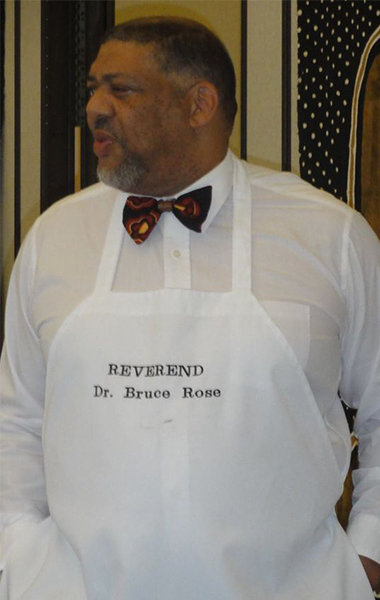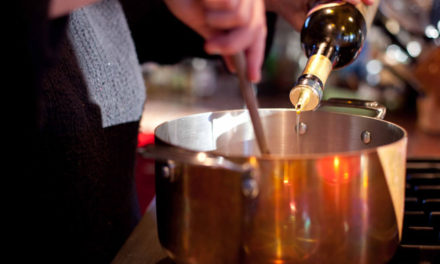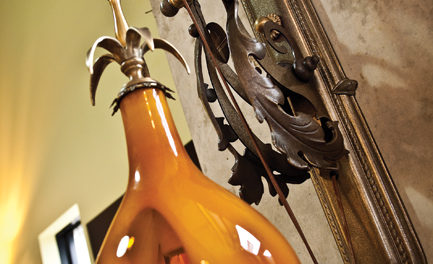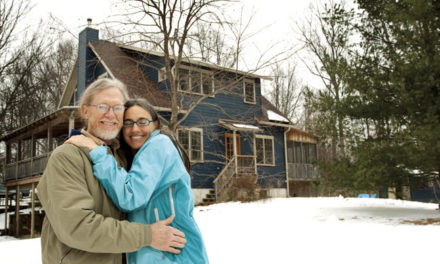by PETER DORFMAN

Social distancing and shelter-in-place orders have forced everyone who provides in-person services to improvise new ways of operating. That’s as true for Bloomington’s clergy as for anyone else. “I’m just keeping my head above water and my people encouraged,” says the Rev. Bruce Rose, pastor of the Second Baptist Church on the Near West Side.
The church has an active food pantry, and one of the first obstacles of the pandemic was finding out it could only serve up to 10 people at a time. “We didn’t have any livestreaming planned,” Rose recalls. “We didn’t have any type of online giving set up. We were really caught off guard.”
With help, on a minimal budget, Second Baptist now has online streaming of services in place. “After a couple of weeks, we started doing prerecorded services,” Rose notes.
It’s difficult, though. Baptist services tend to take worshippers on an emotional journey. “It’s different when you only have a few people there—someone doing the camerawork, a deacon doing the Scripture and the prayer, one lady who sings, and one musician,” Rose relates. “That’s who I get up and preach to. We’re used to a call and response—do I have a witness? Have you been there? And someone will say, ‘Yeah, amen!’ But even when you only have four or five people, they’ll get with the program.”
Most of the Second Baptist congregation has taken the crisis in stride, Rose reports—once they got over their initial apprehension. “We just keep reminding people that God’s in charge,” he adds.
Indiana’s stay-at-home rules have made pastoral work difficult. “Some people are afraid,” Rose says. “People will call just wanting to vent; my text messaging has increased dramatically. I have more of an elderly congregation. Deacon Gene Shipp is 101. He’s out at Bell Trace, and they’ve been on lockdown since mid-March, and he’s always telling me, ‘I’m just tired of being locked up with all these old people.’”
Rose and his deacons recently instituted a program called Prayer on the Move. Instead of holding Wednesday night prayer meetings, they would go visit congregants at their homes. “We had just gotten that started, and then this crisis came along,” Rose says. “We’ll just have to pick that up when things go back to normal.”
Rose and his team have been shopping for masks and infrared thermometers. Once the church reopens, ushers will do quick temperature scans, issue masks to those who need them, and try to enable worshippers to keep some distance in the usually-packed sanctuary.
“We’re a touching congregation—we like to hug,” Rose notes. “I think some of that’s going to change. We’ll ask people with a fever to retire to the annex or go home. That’s going to be tough. This situation has squeezed our comfort zones, and made us look at life from a different perspective.”















